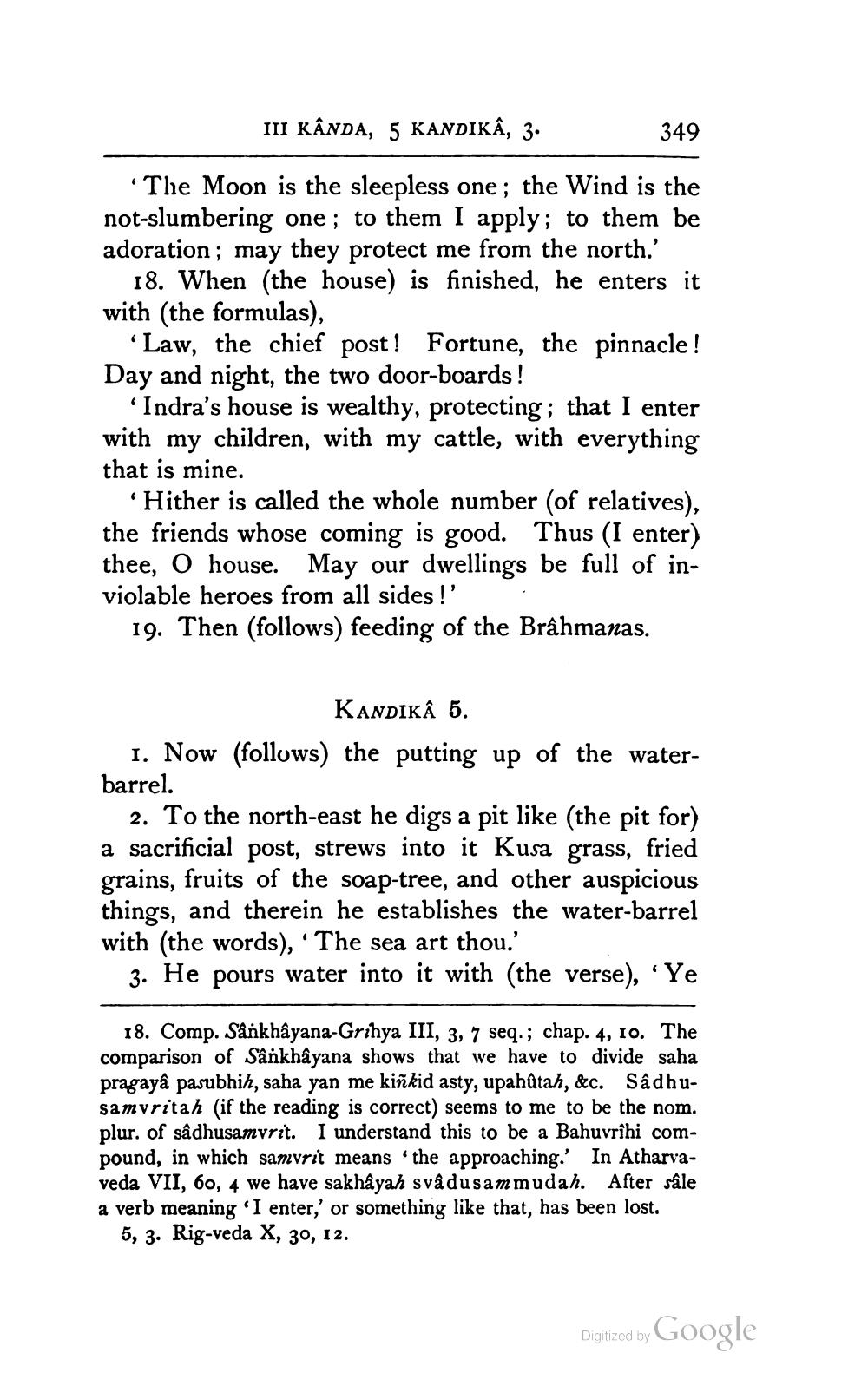________________
III KÂNDA, 5 KANDIKÂ, 3.
349
'The Moon is the sleepless one; the Wind is the not-slumbering one; to them I apply; to them be adoration; may they protect me from the north.'
18. When (the house) is finished, he enters it with (the formulas),
'Law, the chief post! Fortune, the pinnacle! Day and night, the two door-boards!
'Indra's house is wealthy, protecting; that I enter with my children, with my cattle, with everything that is mine.
'Hither is called the whole number (of relatives), the friends whose coming is good. Thus (I enter) thee, O house. May our dwellings be full of inviolable heroes from all sides!'
19. Then (follows) feeding of the Brahmanas.
KANDIKA 5.
1. Now (follows) the putting up of the waterbarrel.
2. To the north-east he digs a pit like (the pit for) a sacrificial post, strews into it Kusa grass, fried grains, fruits of the soap-tree, and other auspicious things, and therein he establishes the water-barrel with (the words), 'The sea art thou.'
3. He pours water into it with (the verse), 'Ye
18. Comp. Sânkhâyana-Grihya III, 3, 7 seq.; chap. 4, 10. The comparison of Sankhâyana shows that we have to divide saha pragayâ pasubhih, saha yan me kiñkid asty, upahûtah, &c. Sâdhusamvritah (if the reading is correct) seems to me to be the nom. plur. of sâdhusamvrit. I understand this to be a Bahuvrîhi compound, in which samvrit means the approaching.' In Atharvaveda VII, 60, 4 we have sakhâyah svâdusammudah. After såle a verb meaning 'I enter,' or something like that, has been lost. 5, 3. Rig-veda X, 30, 12.
Digitized by Google




